
July 2018
Global Health Research and Development
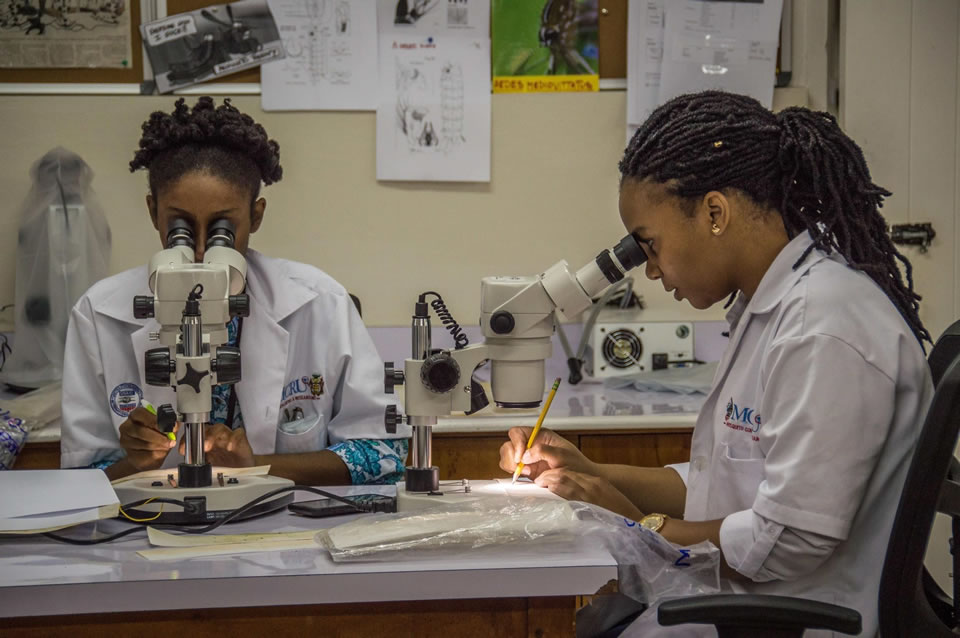
Lab supervisors Towanna Campbell and Jervis Crawford of Zap Jamaica count mosquito eggs at the University of the West Indies in Mona, Jamaica. Photo credit: Stephen Kierniesky for USAID
Research, introduction and scale-up of proven solutions are critical components of USAID’s work to overcome some of the world’s most challenging health and development problems. As a leader in the application of science and technology to achieve development objectives, the Agency recognizes that a strong foundation in research is vital. Its Bureau for Global Health’s focuses on research that can be applied in developing countries to solve real-life problems.
Whether it's through product development or field implementation trials, we seek to broaden scientific progress and innovation that will empower countries and improve individual lives. Through partnerships with our field missions, countries we work in and the private sector, the Bureau for Global Health's R&D agenda includes implementing high-impact solutions to prevent child and maternal deaths and control HIV and other infectious diseases.
Learn how USAID's Health Research and Development Program supports introduction, adoption, and scale-up of products, technologies and systems to improve maternal, newborn and child health in low- and middle-income countries.
The New Trend in Implementation Research: Why African Countries are Using Developmental Evaluation to Inform Programmatic Work
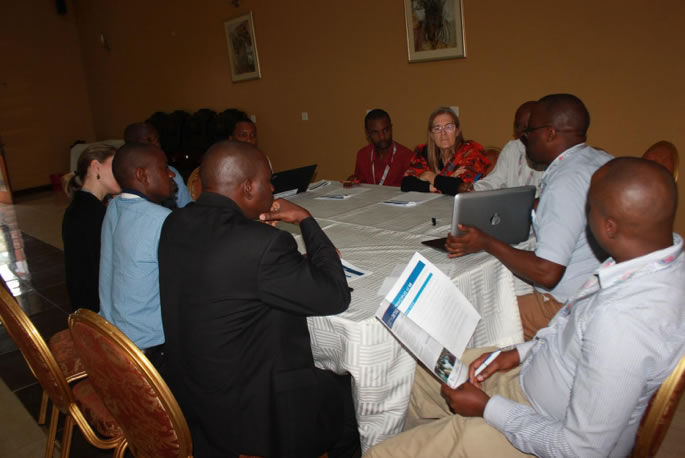
Share Fair attendees discuss the value of developmental evaluation. Photo credit: Coordinating Implementation Research to Communicate Learning and Evidence.
While standard evaluation methods have been common practice for many years, imagine if you could evaluate and modify a project in real-time to maximize results. Development Evaluation does just that. At this year’s East Africa Share Fair in Entebbe, Uganda, development evaluation was a topic of interest, particularly as applied by USAID’s Boresha Afya (“Improve Health”) project. The Agency is using development evaluation to support the government of Tanzania efforts to integrate and improve the quality of primary health care.
Developmental evaluation supports real-time collaborative learning and adaptive management efforts. USAID project staff will provide real-time feedback to Boresha Afya to facilitate timely decisions and corrective or supportive actions to meet project goals, address unanticipated results and identify new opportunities to improve primary health care in Tanzania.
Learn more about our implementation research to save women and children.
Newly Updated WHO Guidelines Optimize Antiretroviral Treatment Regimens
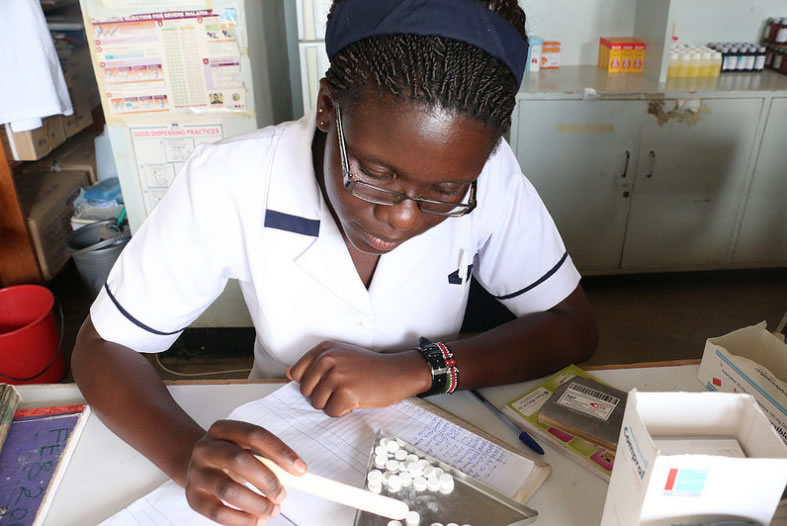
Photo credit: Eric Onyiego/USAID-Kenya
ART optimization is the harmonization of global efforts to accelerate access to simpler, safer and more affordable HIV treatment. OPTIMIZE is a South African-led consortium of experts in research, pharmaceutical manufacturing, market access, program implementation, advocacy and community engagement.
OPTIMIZE represents the Agency’s support of solutions to challenging development problems like HIV care and treatment coverage. As an OPTIMIZE partner, USAID is supporting global health research and development to accelerate access to improved HIV treatment in low- and middle-income countries. As efforts continue to accelerate to meet UNAIDS 90-90-90 targets, USAID is proud to partner with endeavors like OPTIMIZE that are maximizing development investments and bringing better and more affordable HIV medications to people who need them most.
Learn more about USAID’s approach to ART optimization.
USAID’s Emerging Approaches to R&D
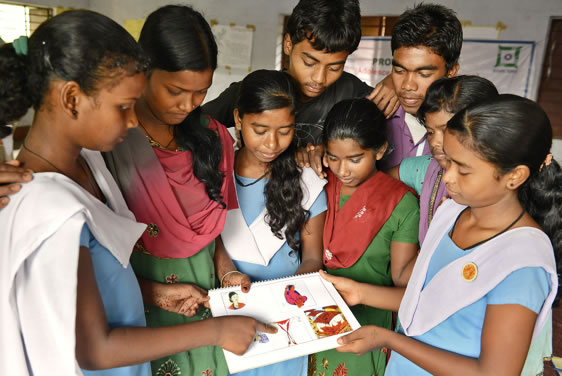
Photo credit: Prasanta Biswas/Photoshare
USAID is continually exploring and applying nontraditional approaches to its R&D in global health to complement and accelerate the effectiveness of existing programs. Some of these approaches, such as HCD and early and comprehensive product launch planning, come from the private sector. By using these complementary methods and drawing on the expertise of its partners, the Agency is continuously finding ways to improve programming.
For example, USAID is applying HCD to its work by actively engaging end-users, providers, and other key constituencies to ensure that their needs and expectations are reflected in program design and implementation processes, increasing the likelihood that intended beneficiaries will adopt and continue program practices after Agency funding ends. The Bill & Melinda Gates Foundation and USAID’s Center for Innovation and Impact are developing resources to support the understanding, appropriate use, and effectiveness of design in global health. Visit the website at www.designforhealth.org.
GLOBAL HEALTH HIGHLIGHTS
The Global Health Science and Practice Journal Turns Five
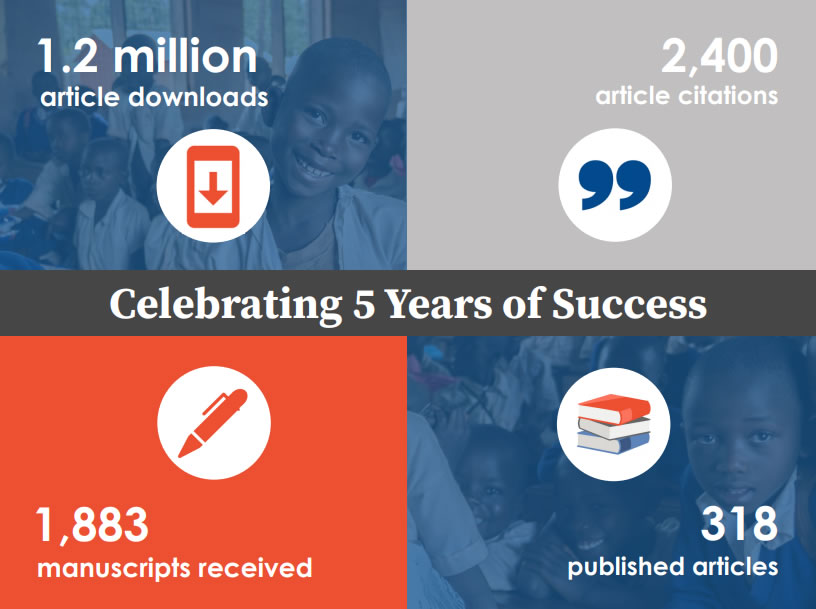
Five years ago, USAID and the Johns Hopkins Center for Communication Programs launched the Global Health Science and Practice (GHSP) journal. The initial objective was to fill an substantial gap in programmatic evidence. The overall vision was to enable the global health community to share important lessons from their program experience, and to do so with rigor. USAID wanted to contribute to the development of new norms on how to study and document program implementation issues to inform global health policy and practice. Since launching five years ago, GHSP has published 45 editorials and 273 original articles, commentaries, viewpoints, field action reports and other types of articles. Looking forward, it hopes to cover topics that are neglected in the global health literature and to publish more papers by authors in low- and middle-income countries. Read Global Health: Science and Practice … 5 Years In.
WHO Releases Intrapartum Guidelines to Reduce Unnecessary Interventions and Ensure Respectful Care
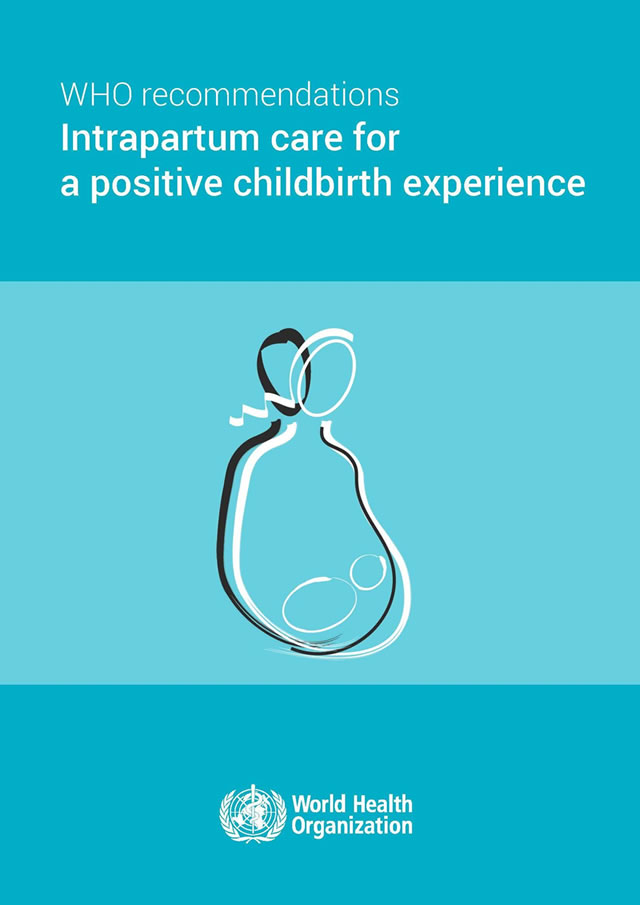
Hear from USAID’s Theresa Shaver on how WHO’s newly released updated intrapartum guidelines could benefit maternal and newborn health if implemented globally. A major area of attention is respectful maternity care, a prominent focus of USAID’s Health Research Program.
As a result of USAID-funded research, Afghanistan, India, Kenya, Malawi, Nepal and Nigeria integrated respectful maternity care into national policy standards. The Agency’s research, in conjunction with WHO’s intrapartum guidelines, has the potential to transform maternal health by providing governments with the framework to adopt policies that promote a healthy and respectful birthing process.
Listen to USAID’s Global Health Research and Development Webinar Series

During March and April of this year, USAID launched a webinar series focused on approaches to global health R&D in the context of a new five-year strategy. Each webinar focused on a global health topic and drew practical examples from investments made in 2016 and beyond. If you missed this webinar series, you can hear the audio recordings and download the slide decks.
AT Scale: Global Partnership for Assistive Technologies
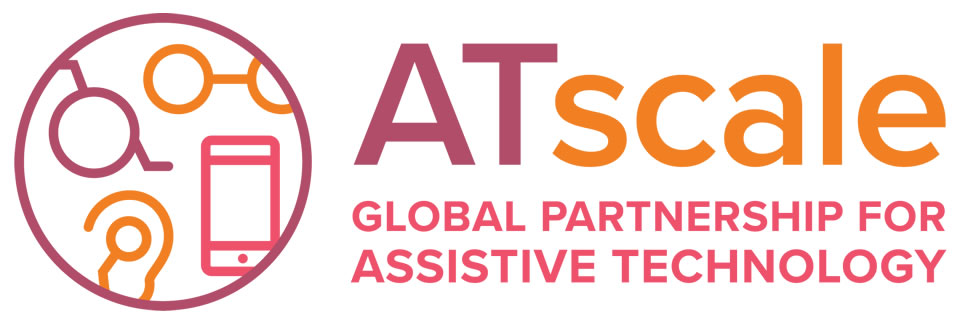
Access to assistive technology (AT), such as wheelchairs, hearing aids, and prosthetics, is critical for improved health outcomes, inclusive education, economic empowerment, and civic participation. Progress in accelerating access to AT has been slow and sporadic, and investments uncoordinated. To tackle these challenges, USAID-led by the Bureau for Democracy, Conflict, and Humanitarian Assistance and the Center for Innovation and Impact and partners have launched ATscale: A Global Partnership for Assistive Technology. Initial partners include CHAI; China Disabled Persons’ Federation; DFID; Global Disability Innovation Hub; Government of Kenya; Office of the UN Secretary-General’s Special Envoy for Health; UNICEF; and WHO. On July 24, 2018, ATscale was formally launched at the Global Disability Summit by Penny Mordaunt, UK secretary of state for international development and member of Parliament. By 2030, the partnership aims to help 500 million people get access to the life-changing AT they need. For more, see https://atscale2030.org/.
LOOK AHEAD
Nominate Potential Winners of the 2018 Innovating for Impact Awards

The Global Health Technologies Coalition’s Innovating for Impact Awards celebrates the research partnerships and political champions that help transform breakthrough scientific research into life-saving drugs, diagnostics, vaccines, and other tools to overcome devastating global health challenges. The deadline for nominating potential winners is August 17.
Fifth Global Symposium on Health Systems Research, October 8–12, Liverpool
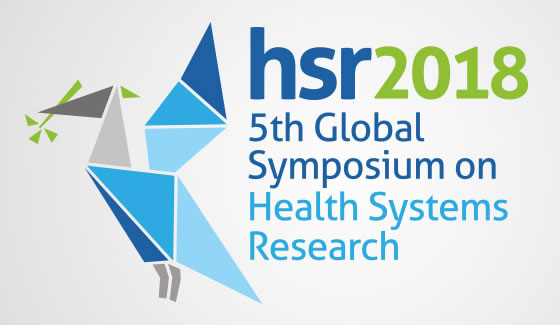
Join USAID's Health Research Program on October 9 at our side session and booth at the Fifth Global Symposium on Health Systems Research, which will convene approximately 2,000 health systems researchers, policymakers and practitioners from around the world. Come learn about our research efforts to save women and children.
World Breastfeeding Week, August 1–7
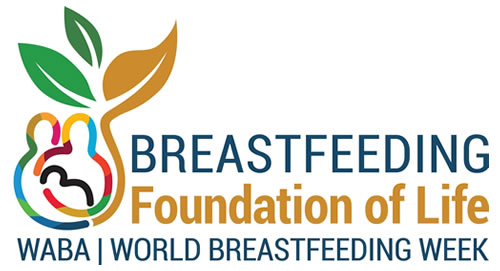
World Breastfeeding Week (WBW) is an annual celebration coordinated by the World Alliance for Breastfeeding Action that promotes breastfeeding and raises public awareness of its importance. The theme of this year’s celebration is “Breastfeeding: Foundation of Life.”
For over 50 years, USAID has supported breastfeeding to prevent malnutrition, reduce poverty and enhance food security. This WBW, USAID looks forward to celebrating the work of all those who help moms and families worldwide reach their breastfeeding goals!
USAID GH MEDIA MENTIONS
Ebola Outbreak in the DRC Ends: WHO Calls for International Efforts to Stop Other Deadly Outbreaks in the Country
World Health Organization News Release — July 24, 2018
No, Team Trump Does Not Question the Importance of Breastfeeding
New York Post — July 20, 2018
Opportunity Driving Change in Global Development Sectors
DevEx — July 17, 2018
Now in Sight: Success Against an Infection that Blinds
New York Times — July 16, 2018
Breast Feeding or Formula? For Americans, It’s Complicated
New York Times — July 14, 2018
New SARS-Like Virus Discovered in Myanmar Bats
Newsweek — July 12, 2018
A Never-Before-Seen Virus has Been Detected in Myanmar’s Bats
Smithsonian.com — July 11, 2018
Q&A: Chip Lyons on PEPFAR’s Great Leap Into The Unknown
DevEx — July 5, 2018
World Health Organization Responds to USAID’s Support in the D.R. Congo Ebola Outbreak
World Health Organization YouTube Channel — July 4, 2018
Doctors Without Borders to Pull Out of Congo as Ebola Scare Wanes
The Hill — July 2, 2018
